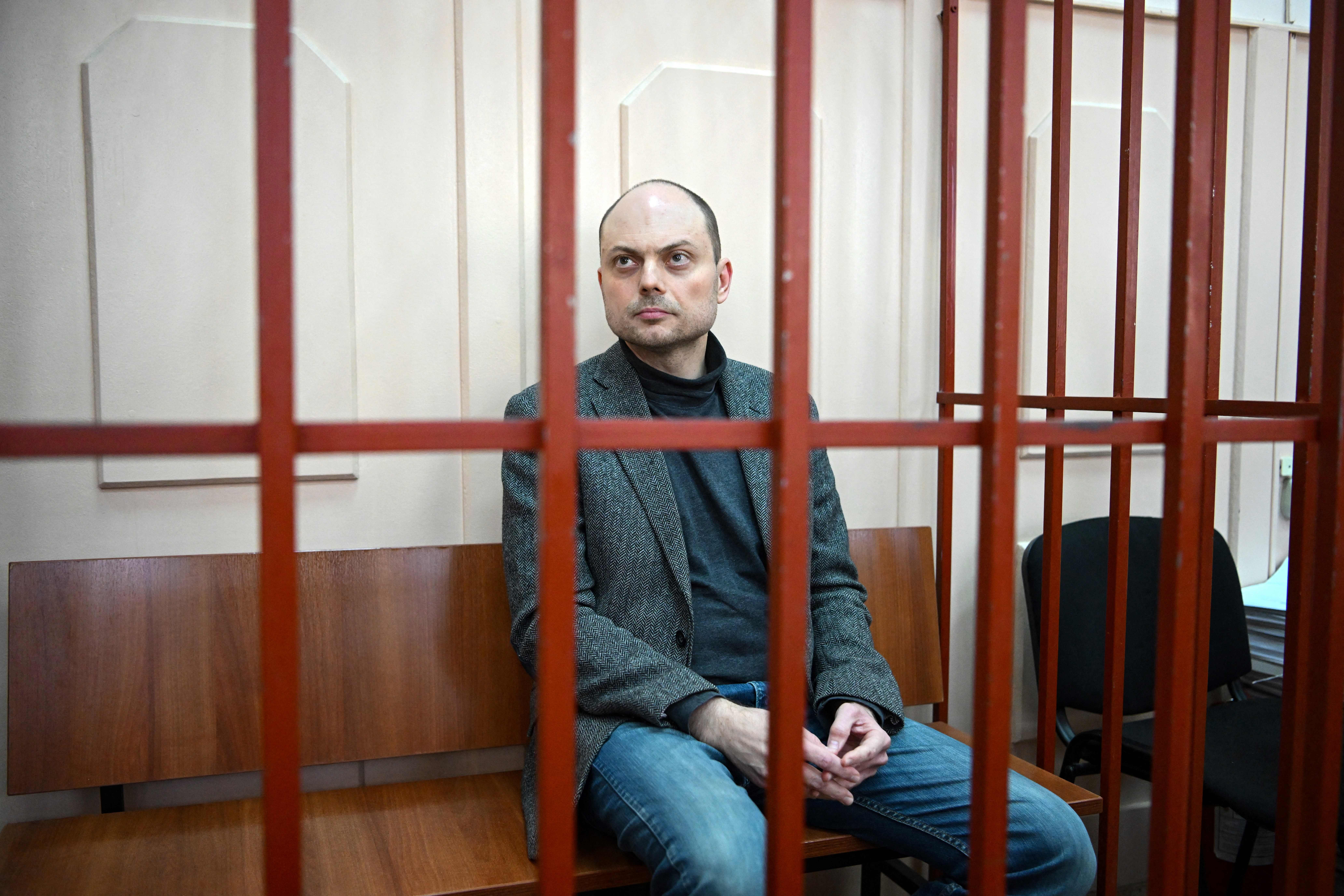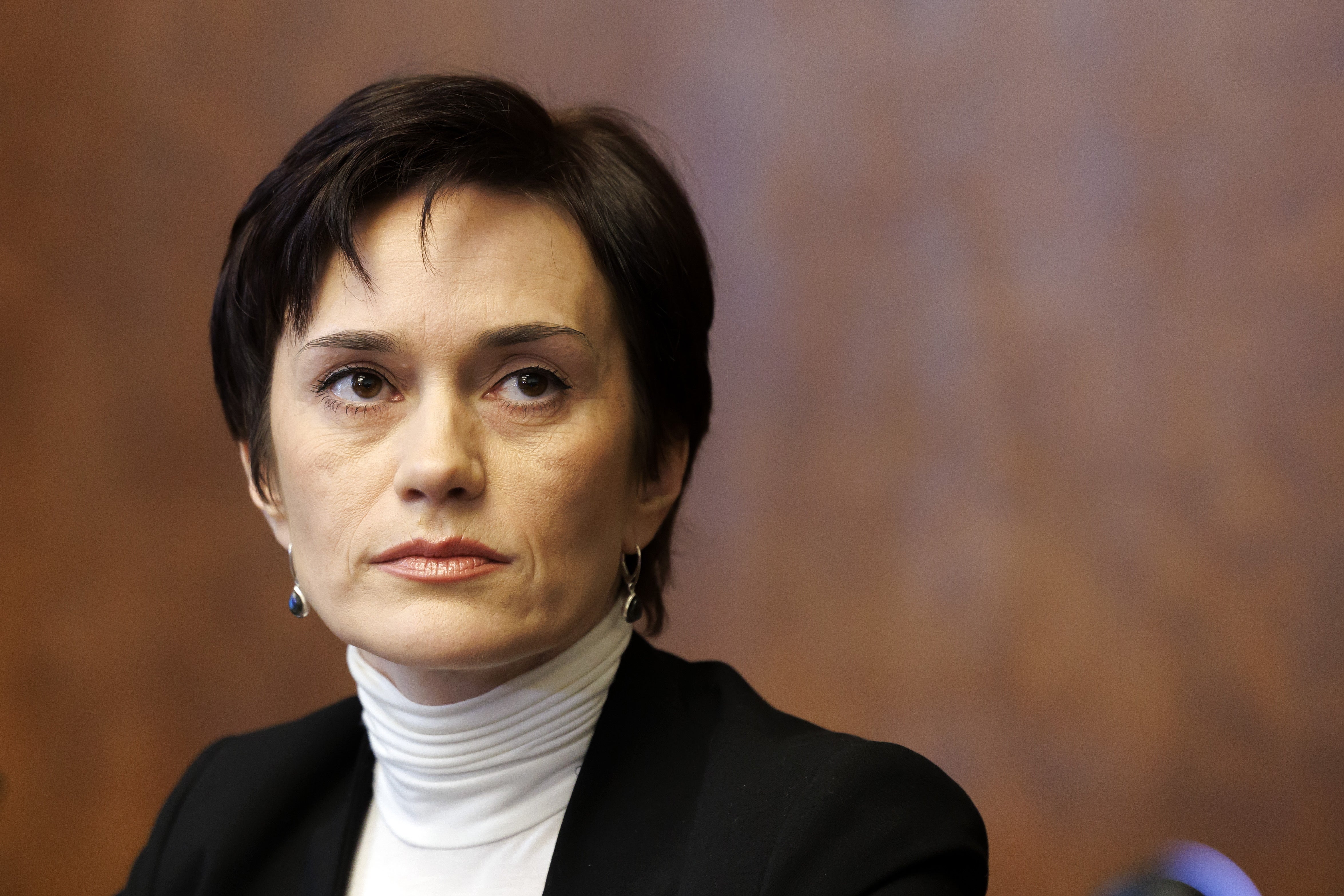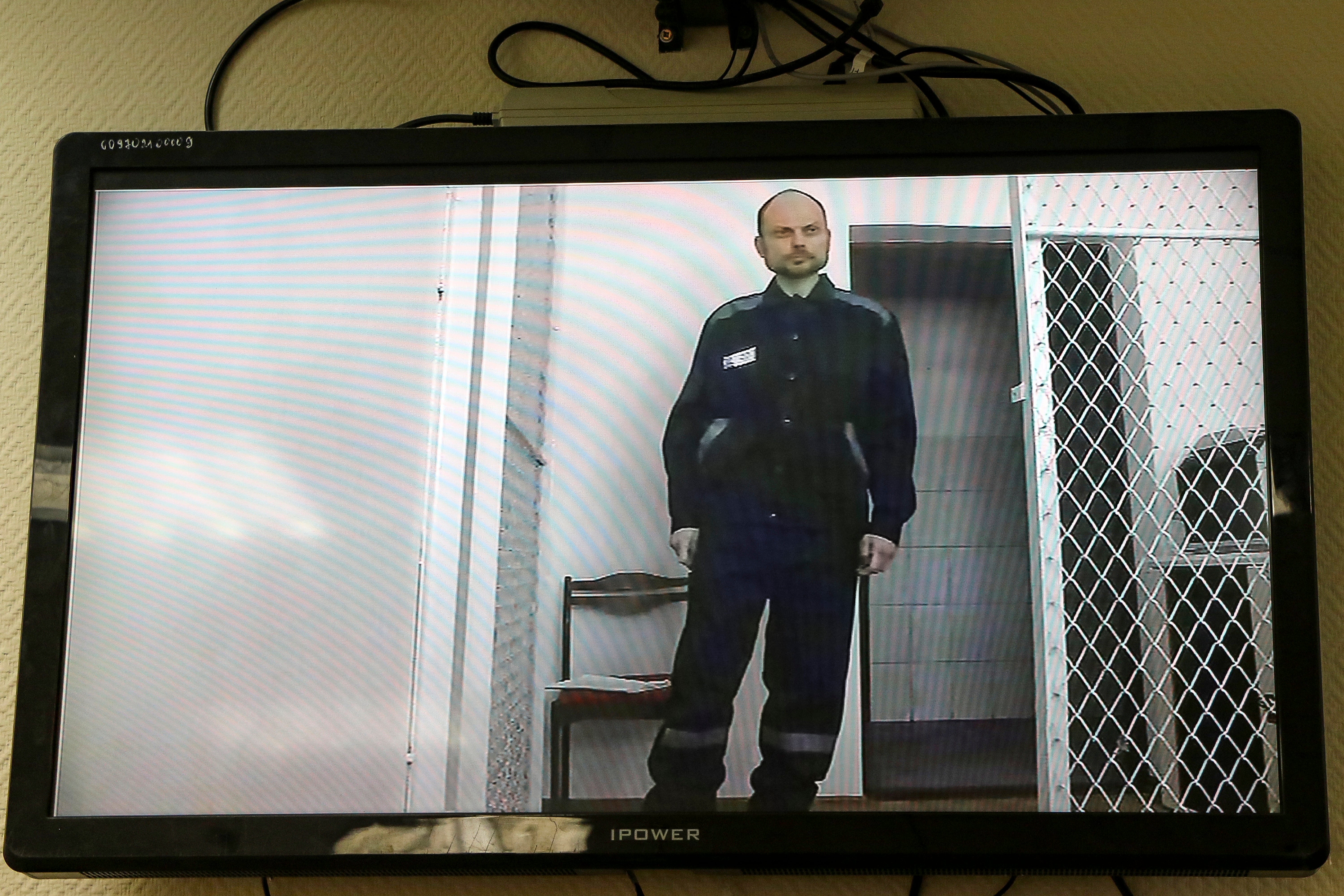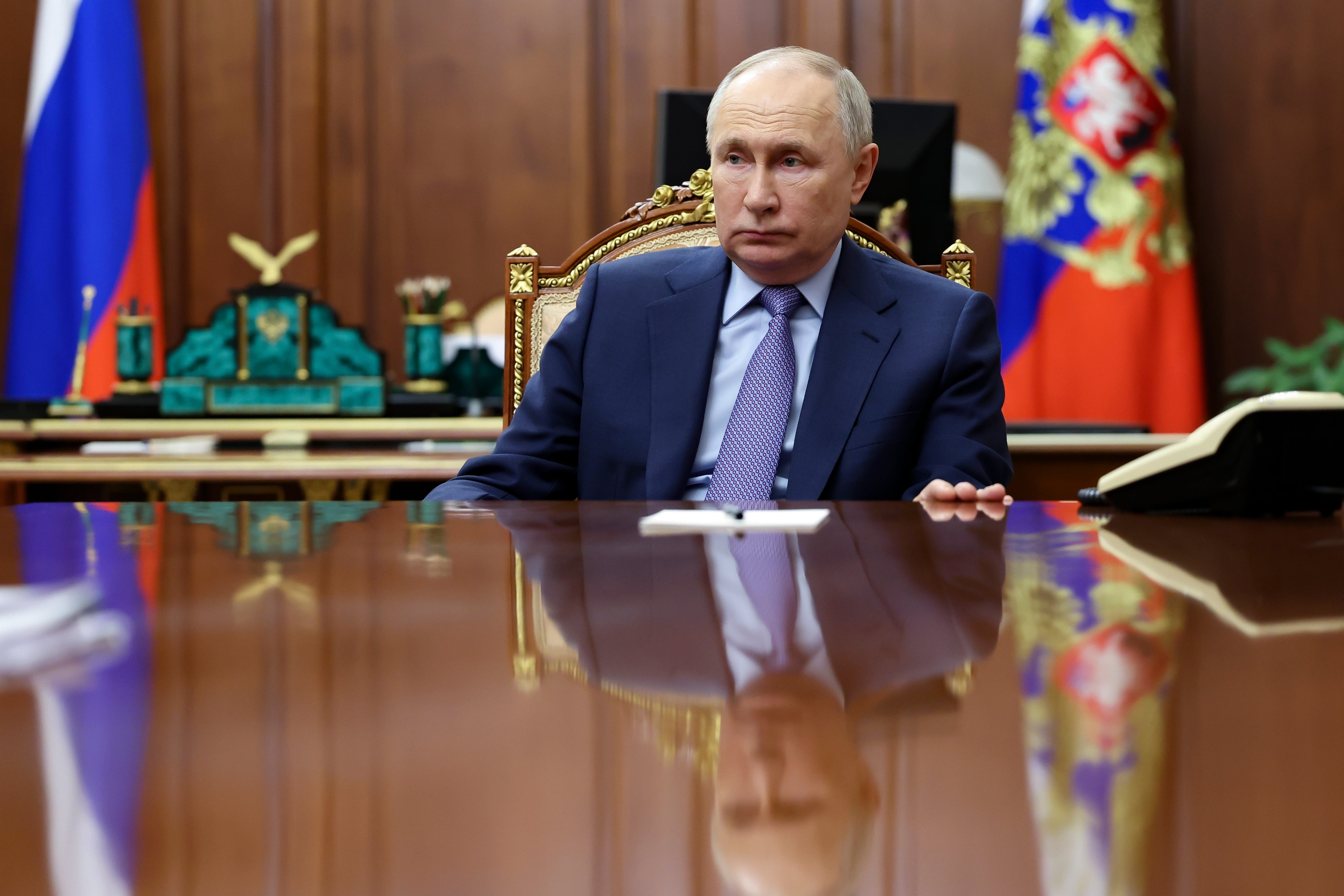Locked up for opposing Putin: Inside Vladimir Kara-Murza’s brutal prison ordeal
The British-Russian dissident was arrested in April 2022 for speaking out against Valdimir Putin’s invasion of Ukraine. He is now serving a 25-year sentence and his wife, Evgenia, does not know when she will be able to speak to him again. Tom Watling reports


The last time Vladimir Kara-Murza – Russia’s most prominent opposition leader after the death of Alexei Navalny – was allowed to speak to his family, his wife Evgenia declined the opportunity. It had been months since they last spoke.
Kara-Murza, who faces 25 years in a remote penal colony for speaking out against Vladimir Putin, the longest sentence handed to a Kremlin critic since the collapse of the Soviet Union in 1991, was only allowed to use the phone for 15 minutes.
So, Evgenia decided, the couple’s children, the oldest of whom is a teenager, would get five minutes each. Her turn would have to wait. Who knows for how long?
It is just one of many injustices inflicted upon Kara-Murza – who holds a British passport – and his young family during his near-two-year unlawful detention in Russia, first in Moscow and then in two remote penal colonies in the Siberian region of Omsk.
In that time, Cambridge-educated Kara-Murza has endured a trial that was heard behind closed doors. His lawyer was forced out of the country, three days before the final hearing, for fear of being arrested himself.
He was sentenced to 25 years on charges decried by the international community.
He has been isolated from other inmates and kept alone in an entire prison block, so he would not “contaminate other prisoners” with his political ideologies. He was tricked into breaking the rules of one prison and then transferred to a harsher colony because of these violations.
He has learnt about the death of his friend, Alexei Navalny, days after his actual death. And he has languished in solitary confinement since last September, denied vital medical care for his deteriorating polyneuropathy, a nerve condition affecting his ability to feel his extremities, which was brought on by two suspected poisoning attempts on his life in 2015 and 2017.
Friends and family fear that the longer he remains in prison, in the same kind of environment that leaders from around the world say led to Navalny’s death in February, the closer he is to dying – or being killed – himself.

From the beginning, Kara-Murza’s case has had little to do with law. On 11 April 2022, less than two months after Putin launched the invasion of Ukraine, Kara-Murza was arrested outside his flat in Moscow.
His crime? Five speeches made in Norway, Portugal, Moscow and two in the US, during which he criticised Putin’s war.
“Today, the whole world sees what Putin is doing to Ukraine,” he said during one, to Arizona’s House of Representatives in mid-March 2022. “The cluster bombs on residential areas; the bombings of maternity wards, hospitals and schools; the war crimes – and these are war crimes – that are being committed by the dictatorial regime in the Kremlin against a nation in the middle of Europe. This is where all the years of the Putin rule have led us.”
After the Kremlin arrested Kara-Murza, they accused him of “high treason”, claiming he was spreading false information about the war in Ukraine. Boris Loktionov, the lead prosecutor in the trial, later described him as “an enemy of the state”.
For Vadim Prokhorov, Kara-Murza’s lawyer, who was forced out of the country last year, the real reason they arrested his client is obvious.
“It’s a signal to other opponents of the Putin regime that it is impossible to criticise him and be free,” he says. “Vladimir’s case is a clear example of the restoration of the Stalinist era in Russia.”
Roughly 1,000 people have been charged in Russia for opposing the war in Ukraine since the full-scale invasion was launched in February 2022. But it is Kara-Murza who has been handed the harshest jail sentence.

The judge presiding over Kara-Murza’s case, a man named Sergei Podoprigorov, has been sanctioned by a number of nations, including the UK, over the death of Russian opposition lawyer Sergei Magnitsky, in 2009. Kara-Murza, alongside his mentor, Boris Nemtsov, who was himself murdered in 2015, was instrumental in having Podoprigorov sanctioned by the US under the “Magnitsky List” in 2012.
“It is impossible to imagine more of a conflict of interest,” says Kara-Murza’s lawyer Prokhorov, who added that he tried multiple times, unsuccessfully, to have Podoprigorov recused from the case. Podoprigorov responded by accusing Prokhorov of contempt of court for speaking about details of the case in public
A few days later, Prokhorov was called into the office of another opposition figure – who remains in Moscow and so Prokhorov does not want to name him or her – who warned him that a senior prosecutor was now investigating him.
Prokhorov recounts the opposition figure as saying: “Maybe it is quite dangerous for you. Maybe yes, maybe no.”
It was just a few days before Kara-Murza’s trial was due to finish last April, a year after he had been arrested. Prokhorov left and has not returned.
Kara-Murza’s treatment in prison, says his family, has been cruel. In the first penal colony he was moved to in Siberia, he was penalised for breaking the rules of the prison after the authorities made it virtually impossible to adhere to them.

In one instance, says his wife Evgenia, he was punished for failing to get up at 6am, when all prisoners are required to start their day. But on that morning, they had turned off his alarm, and prisoners are not allowed clocks in their rooms. The alarm was the only way he could tell the time.
In another instance, Kara-Murza was punished for walking out of his cell with his hands in front of him, as opposed to behind his back. But on that occasion, the prison guards had left his new bed linen several metres from his cell door instead of just outside as usual, so that he would have to walk out onto the prison floor and pick them up.
Evgenia says someone was coincidentally there ready to film the incident. They later used it as evidence that Kara-Murza had broken the rules, and he was written up.
Months later, in January this year, Kara-Murza was moved to the No 7 Special Regime Penal Colony, one of the most restrictive colonies in the country, and placed in a punishment cell barely a few metres long and wide. His access to the outside world – and more importantly to his family – had taken another blow.
The authorities claim it was punishment for Kara-Murza’s “consistent violation of the rules of serving his sentence”.
Asked by The Independent when she thought she might speak to her husband again, Evgenia said: “I don’t think we will be able to hear from him for a while.”






Join our commenting forum
Join thought-provoking conversations, follow other Independent readers and see their replies
Comments